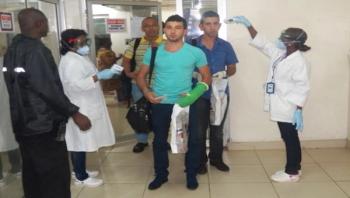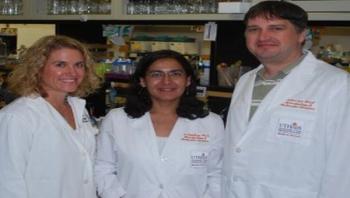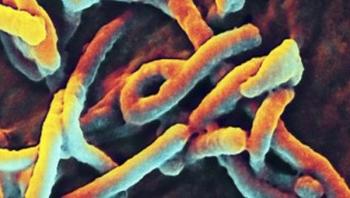
News









Madira Lefa, assistant physician at Kagadi Hospital in Uganda, cried when he read what was going on in Liberia, one of the three countries most seriously affected by the Ebola outbreak. Immediately he started thinking, “I have to help my colleagues”. Madira is one of 14 Ugandan medical doctors and healthcare workers now working in the Ebola treatment centre in JFK Hospital in Monrovia, having been deployed by the World Health Organization (WHO).

“Excuse me, sir, I need to take your temperature.” These words are often overheard these days at the international airport of Monrovia, where a group of doctors and nurses from the Ministry of Health of Liberia screen passengers arriving and leaving the country for Ebola.




When they are not busy attacking us, germs go after each other. But when viruses invade bacteria, it doesn’t always spell disaster for the infected microbes: Sometimes viruses actually carry helpful genes that a bacterium can harness to, say, expand its diet or better attack its own hosts.



Proper healthcare textiles management upholds infection principles, improves patient and healthcare worker safety, and helps hospitals mitigate risk related to infections and adverse events. This report examines healthcare textiles and laundry from many aspects, including infection prevention, microbiology, industrial hygiene, healthcare economics, and much more.



Melbourne researchers are making progress toward new antimalarial drugs, after revealing how an antibiotic called emetine blocks the molecular machinery that produces the proteins required for malaria parasite survival.


The discovery of a new regulatory component in an infectious bacterium could aid efforts to explain its ability to survive in the human body, report microbiologists at the University of Texas Health Science Center at Houston (UTHealth) and University of Maryland, College Park, in the journal Science.






